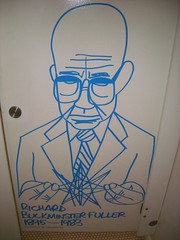My attempt at a sentimental "goodbye" to my students at Whitmore Lake:
My career stats
(I had students guess what each stat was for)

The number of different courses I've taught here.

---------------------------------------------------------------------------------

The number of teachers I've worked alongside for the past 6 years.

-----------------------------------------------------------------------------

The number of students I've had in my classes.

---------------------------------------------------------------------------

The number of school days I've taught.

------------------------------------------------------------------------------

Miles away my new school is from Whitmore Lake High School.

Which is equal to running around Whitmore Lake 163 times.

------------------------------------------------------------------------------

The percentage of my career to date I have left at Whitmore Lake

-----------------------------------------------------------------------------
At this point I launched into a sentimental moment of which I'll save you the details. I really will miss this job. I'll miss this school. I'll miss the staff. I'll miss the community. I'll miss the students. I wouldn't be the teacher I am without the opportunities and challenges this position has given me. I will always look back at this position fondly. It served as a personal proving ground, a testing ground for new ideas, and a sounding board for concerns. I've made some excellent friends that I'll miss horribly and it's helped me successfully transition from newbie to knowledgeable.
-------------------------------------------------------------------------------
Image credits (all via Flickr):

















 “If you are in a shipwreck and all the boats are gone, a piano top . . . that comes along makes a fortuitous life preserver, but this is not to say that the best way to design a life preserver is in the form of a piano top. I think that we are clinging to a great many piano tops in accepting yesterday’s fortuitous contrivings.” - R. Buckminster Fuller
“If you are in a shipwreck and all the boats are gone, a piano top . . . that comes along makes a fortuitous life preserver, but this is not to say that the best way to design a life preserver is in the form of a piano top. I think that we are clinging to a great many piano tops in accepting yesterday’s fortuitous contrivings.” - R. Buckminster Fuller






